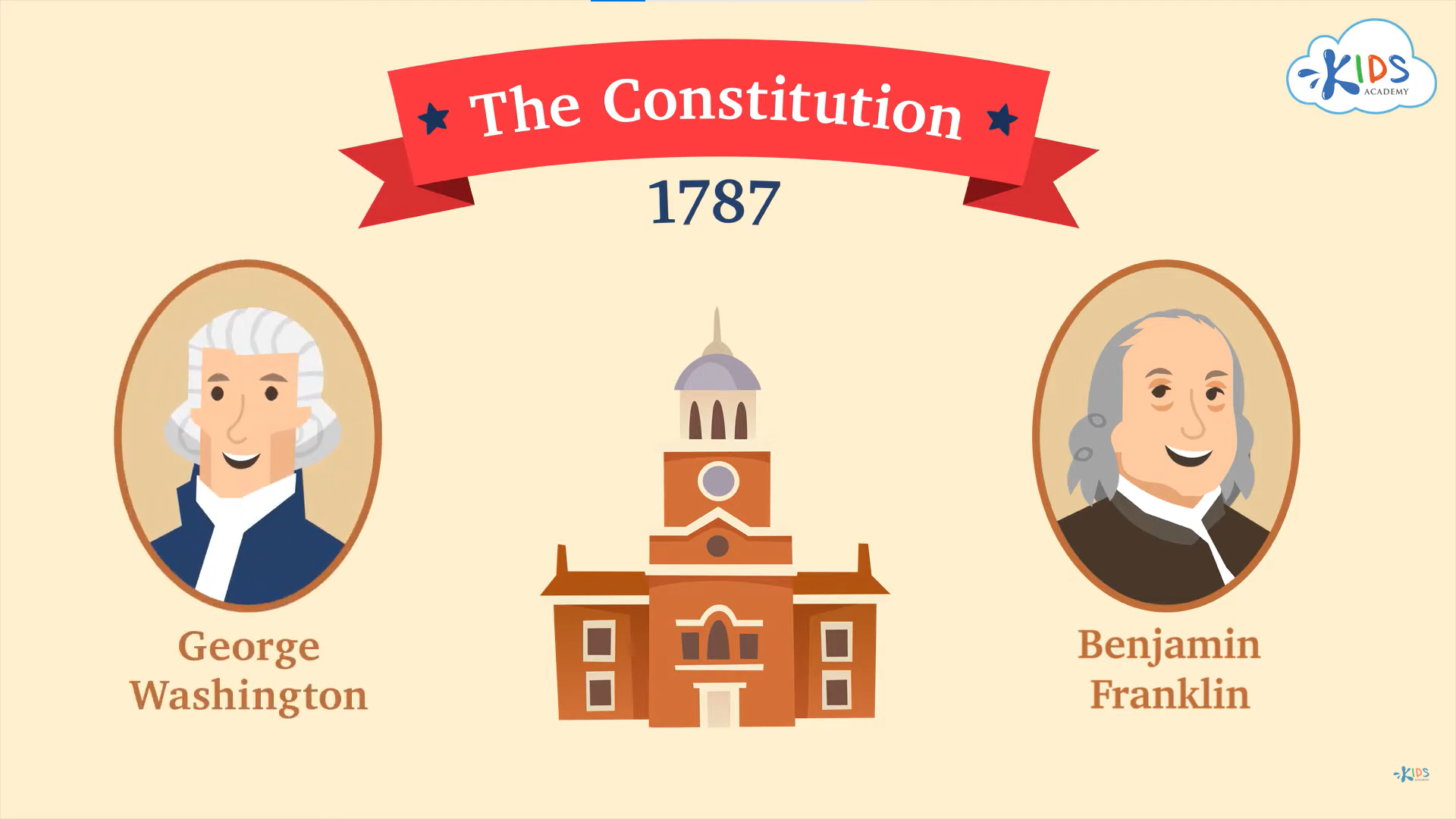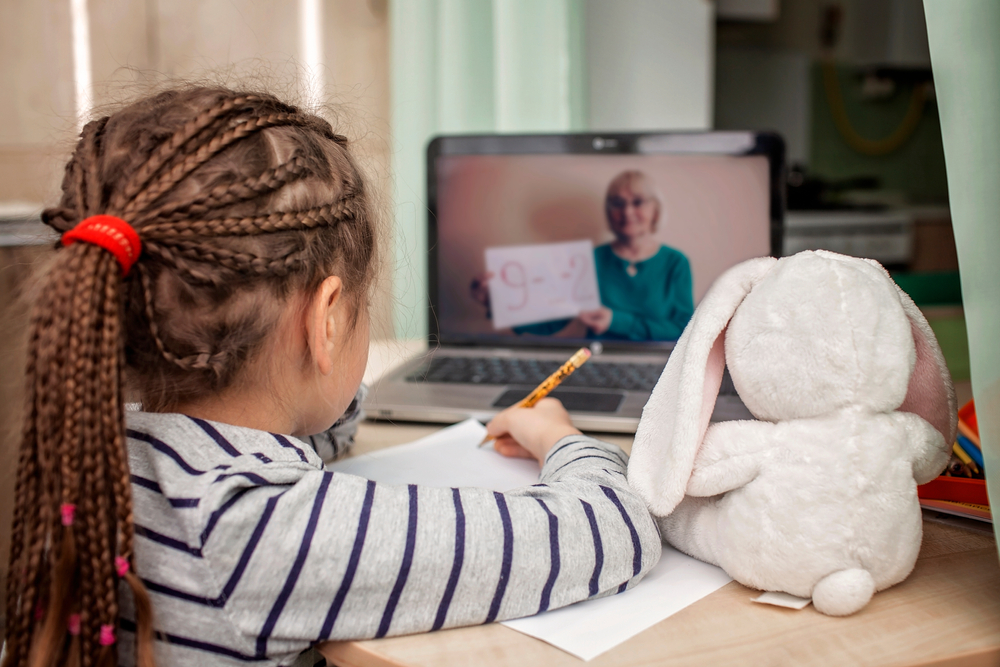Problem-solving practice Normal Worksheets for 7-Year-Olds
5 filtered results
-
From - To
Enhance your child's cognitive abilities with our problem-solving practice worksheets tailored for 7-year-olds. Our engaging and educational worksheets are designed to boost critical thinking, logic, and reasoning abilities. Featuring a variety of age-appropriate challenges, these worksheets help kids develop essential problem-solving skills in a fun, interactive way. Perfect for both classroom and home use, our worksheets connect real-life scenarios with learning concepts, making problem-solving both enjoyable and meaningful. Encourage your child's curiosity and mental agility with our expertly curated practice sheets, and watch their confidence soar as they master new problem-solving techniques.
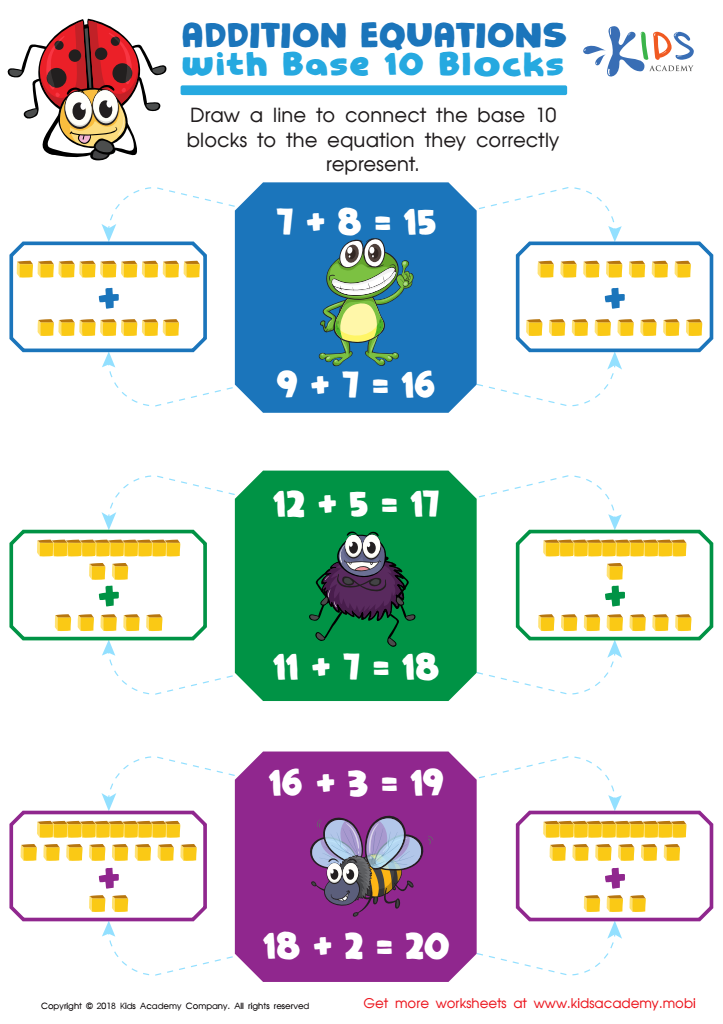

Addition Equations With Base 10 Blocks Worksheet
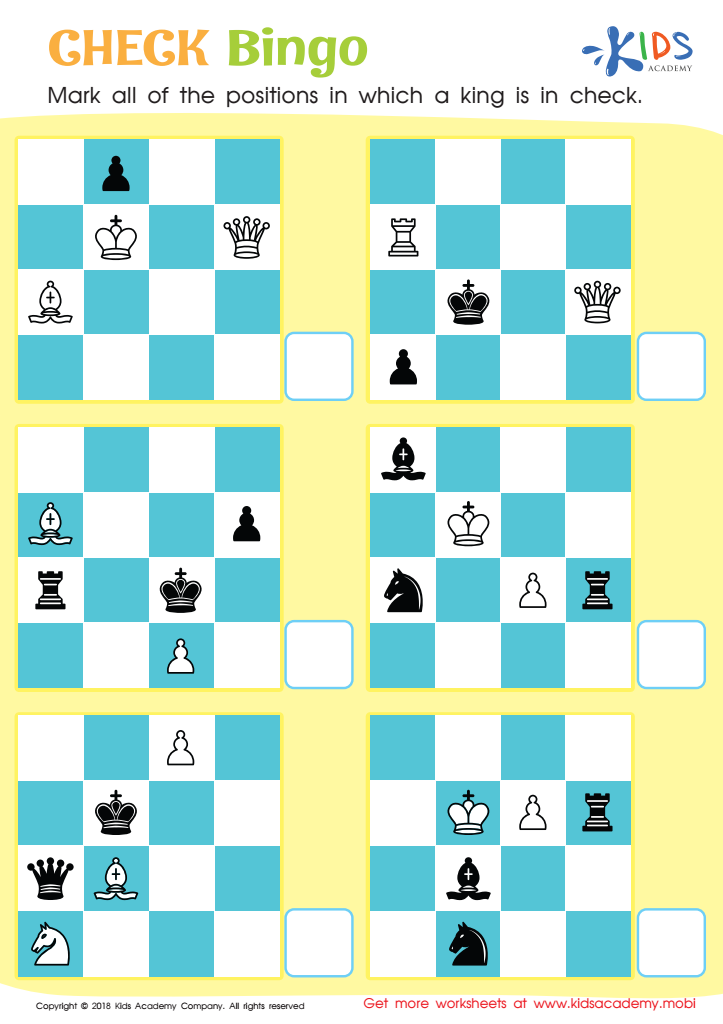

Check Bingo Worksheet
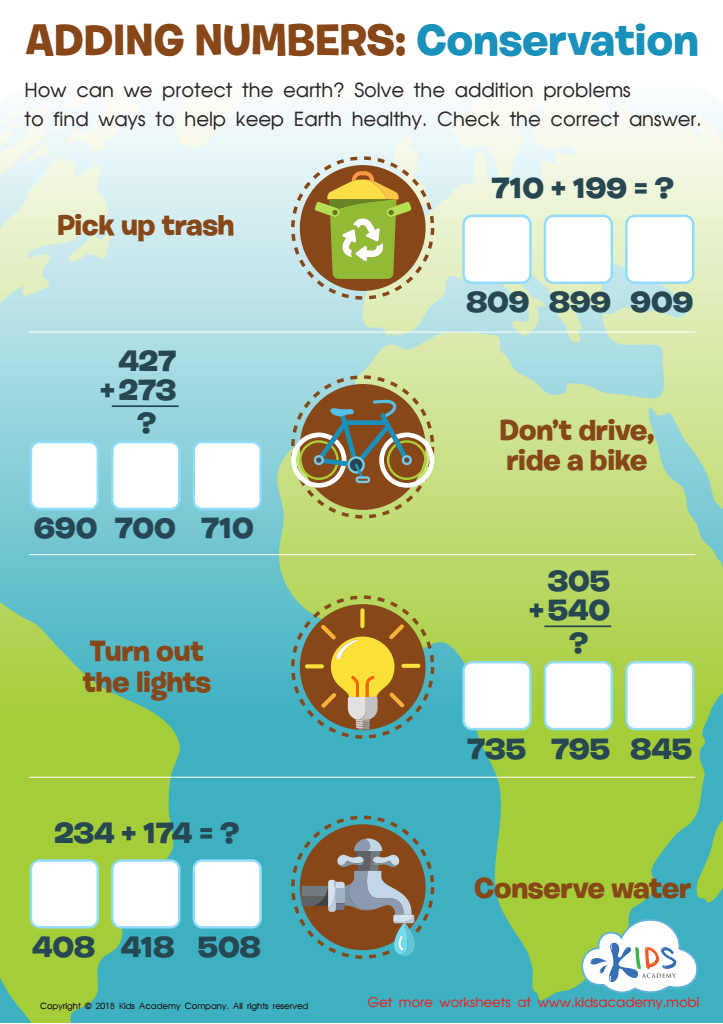

Adding Numbers: Conservation Worksheet
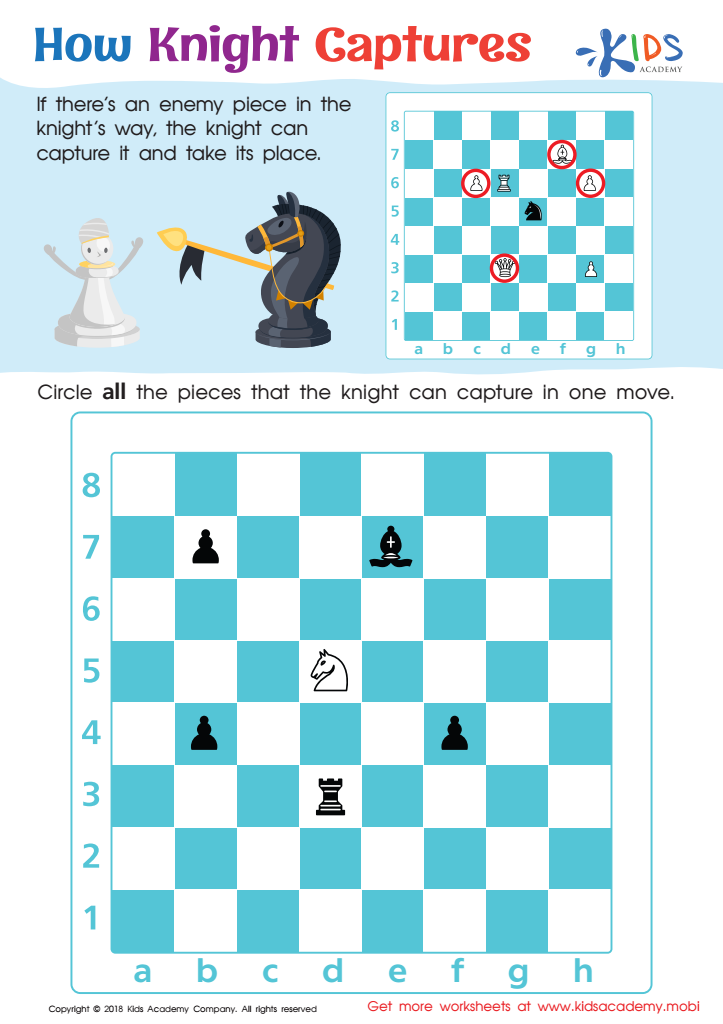

How Knight Captures Worksheet
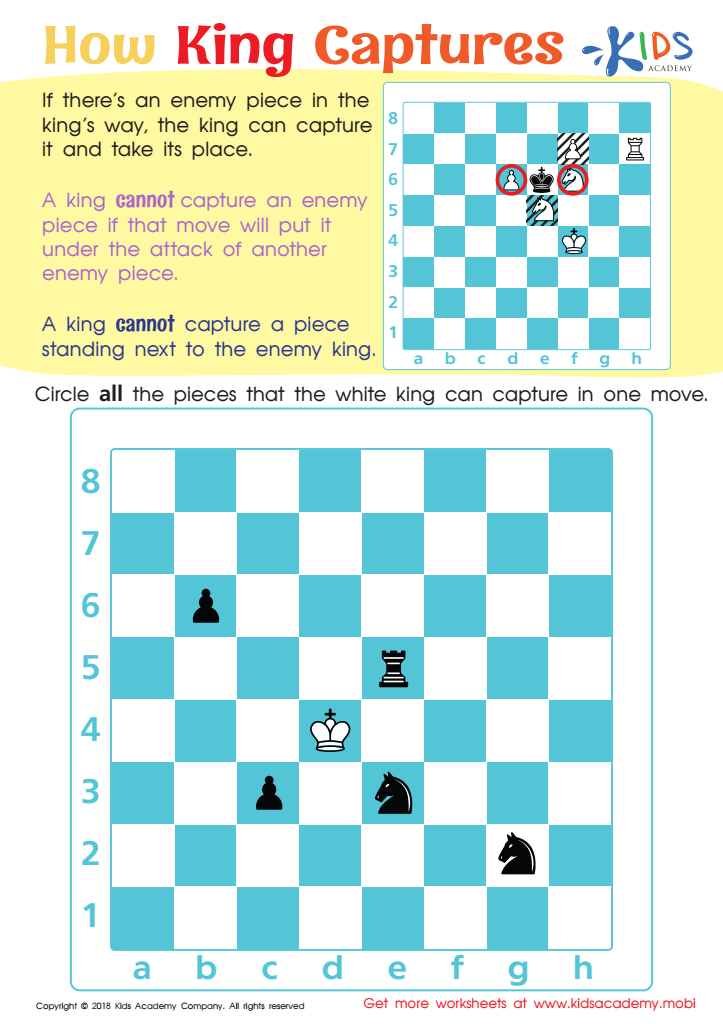

How King Captures Worksheet
Problem-solving practice is essential for 7-year-olds as it equips them with vital skills for both academic and personal success. At this age, children are naturally curious and encountering new challenges daily. Engaging in problem-solving activities strengthens their critical thinking, resilience, and adaptability.
Firstly, it enhances cognitive development by encouraging logical reasoning and analytical thinking. When children learn to break down problems and consider various solutions, they develop higher-order thinking skills essential for subjects like math and science. Furthermore, problem-solving fosters creativity. It encourages kids to think outside the box and come up with innovative solutions, thus nurturing an inventive mindset.
Secondly, it builds social and emotional skills. Collaborative problem-solving teaches teamwork, communication, and patience. Children learn to listen to others' perspectives, share ideas, and negotiate solutions—skills imperative for adulthood. Additionally, successfully solving problems boosts self-confidence and instills a growth mindset, making kids more willing to tackle challenges rather than shy away from them.
Lastly, problem-solving cultivates independence and responsibility. When faced with obstacles, kids learn to take initiative and develop perseverance. This sense of accomplishment and self-reliance is crucial, as it sets a foundation for lifelong learning and decision-making. Thus, parents and teachers should prioritize problem-solving practice to foster well-rounded, capable, and confident individuals.
 Assign to My Students
Assign to My Students




